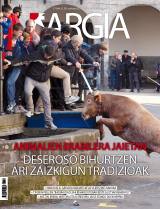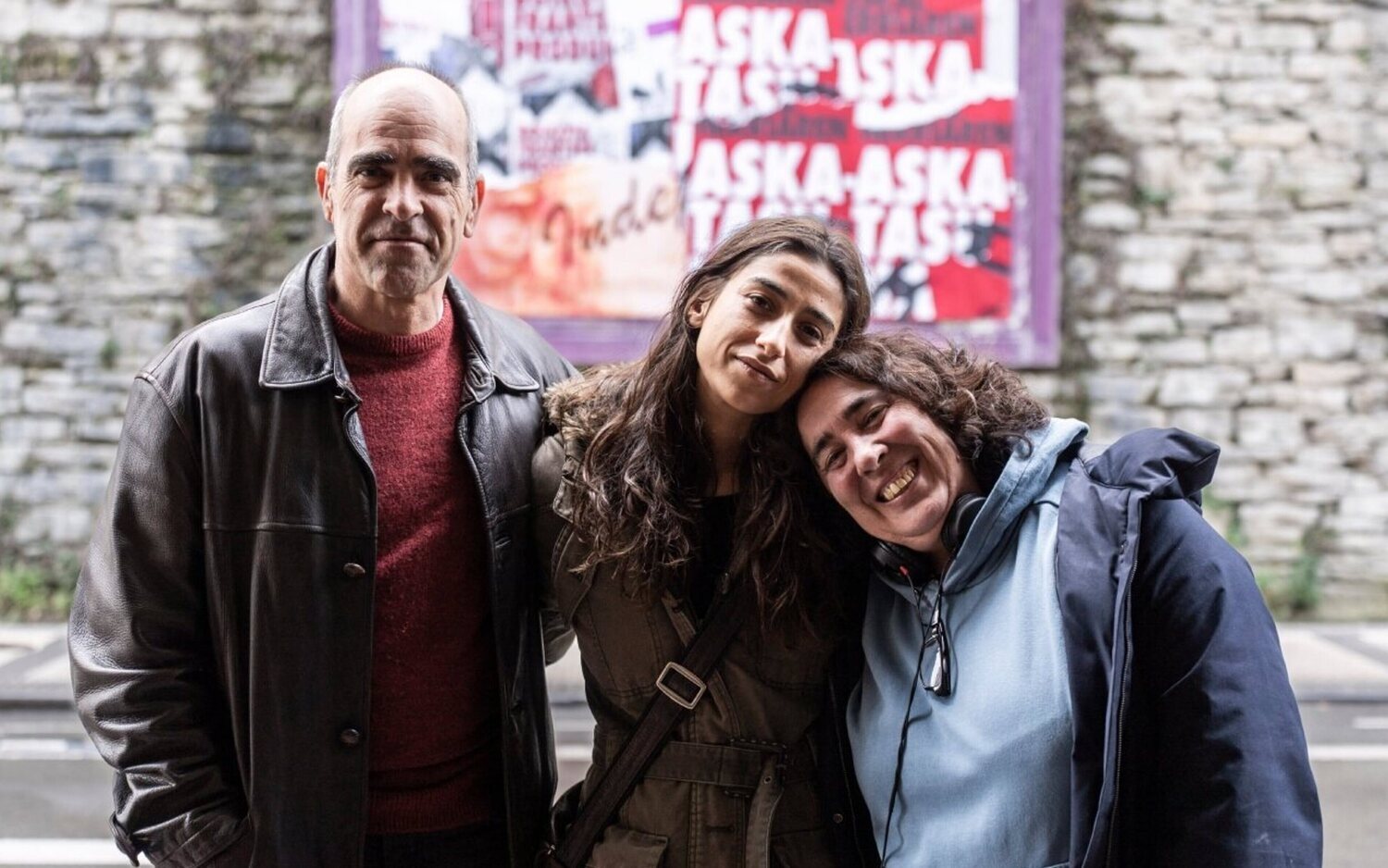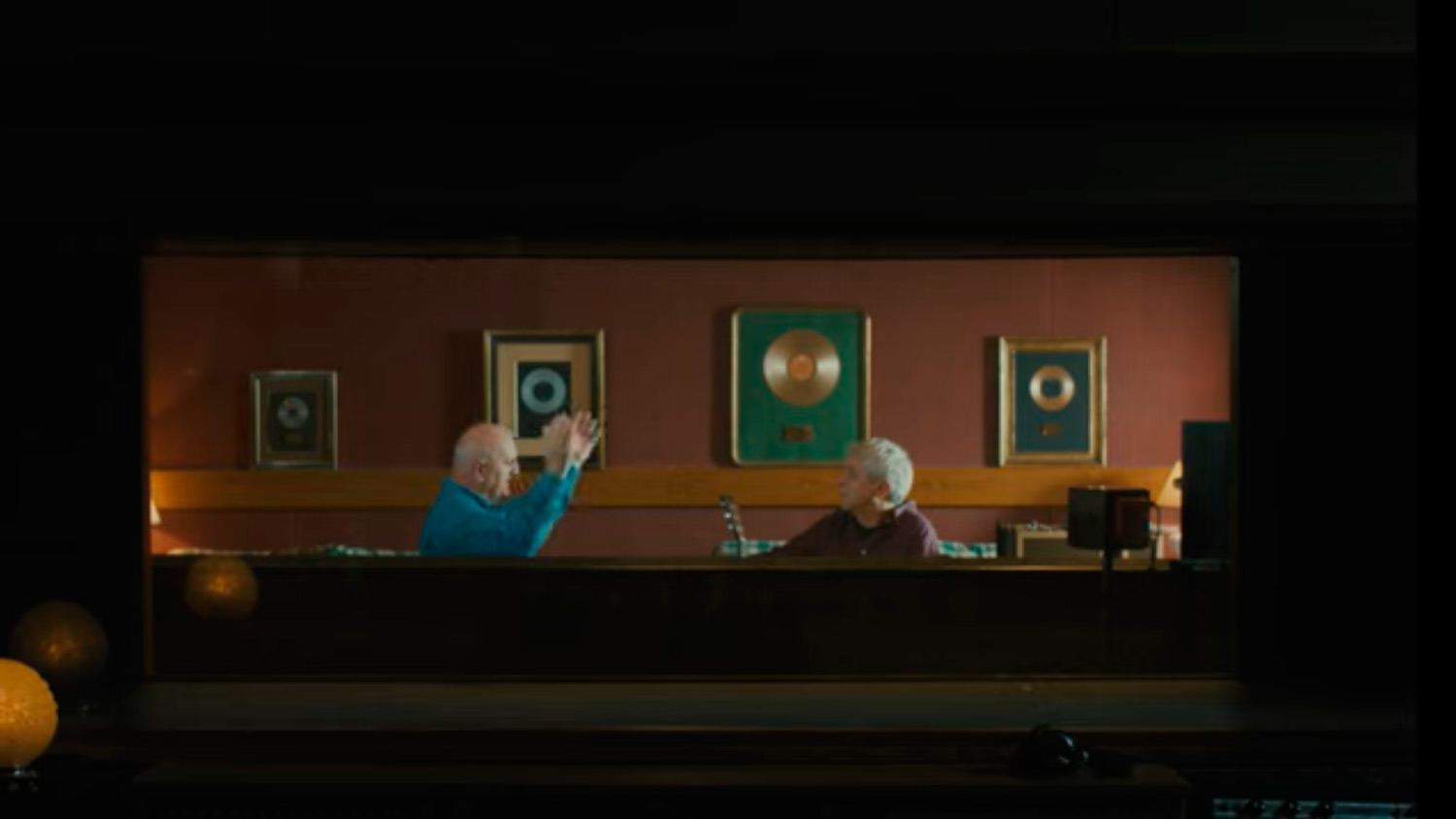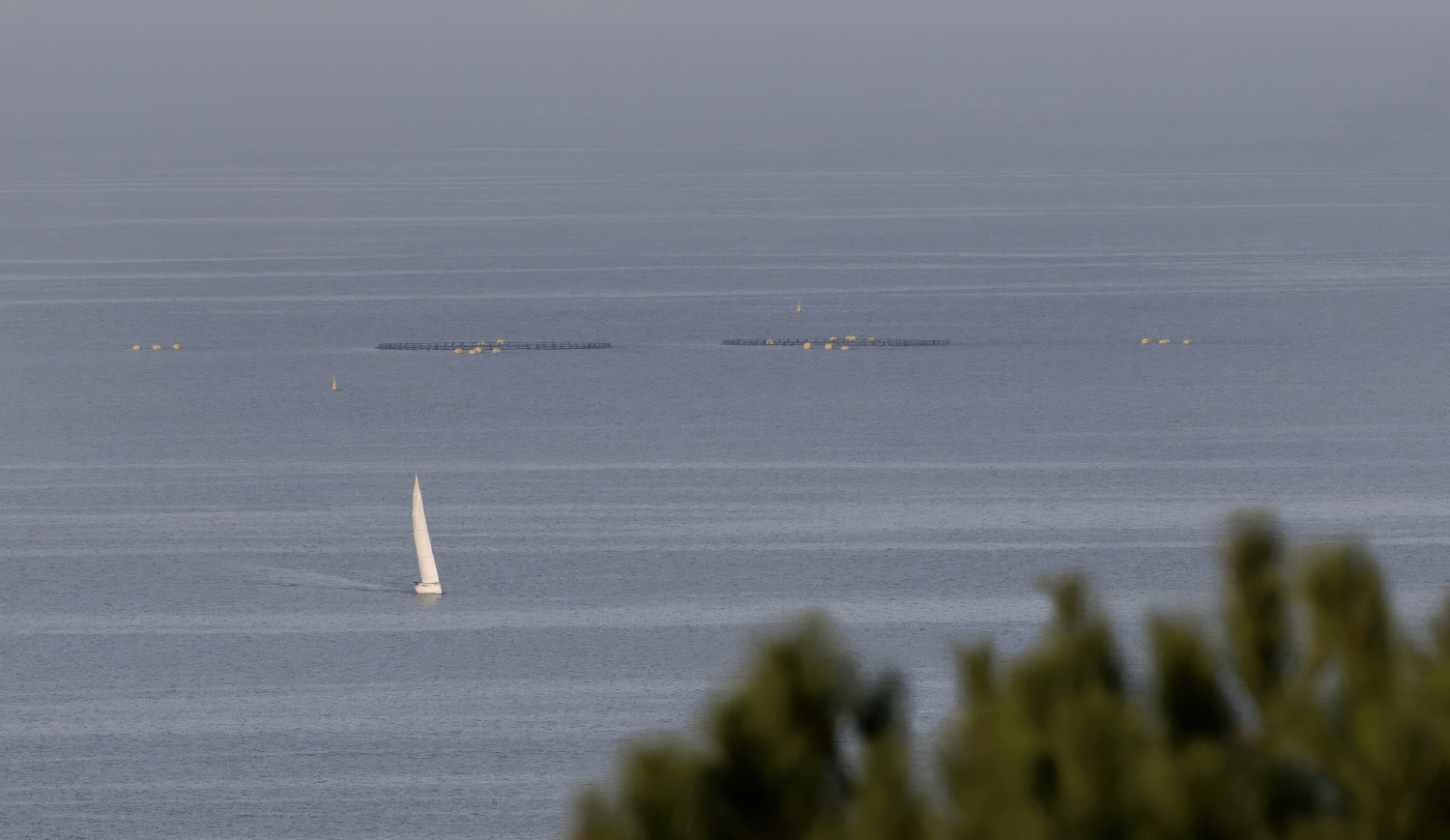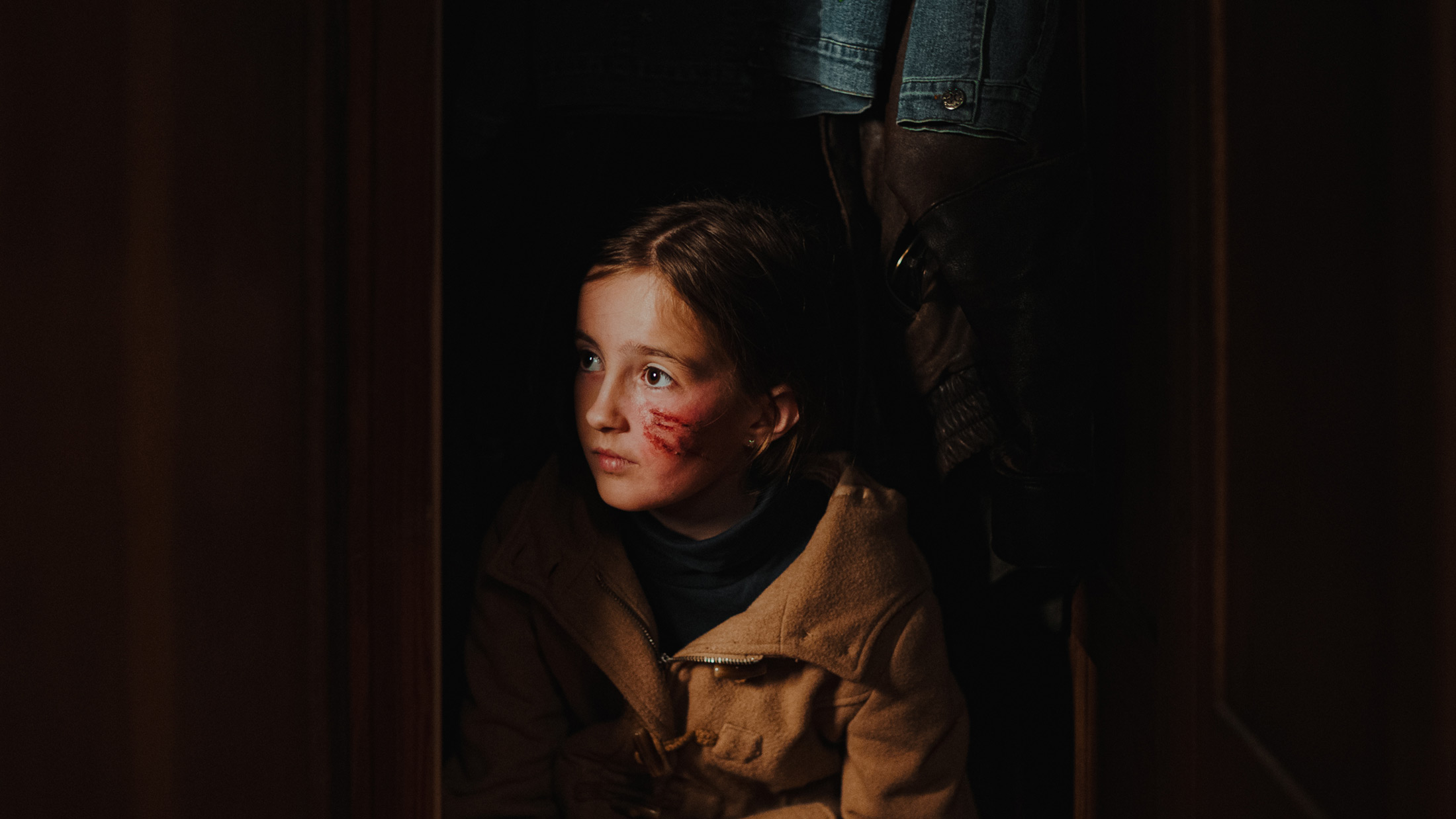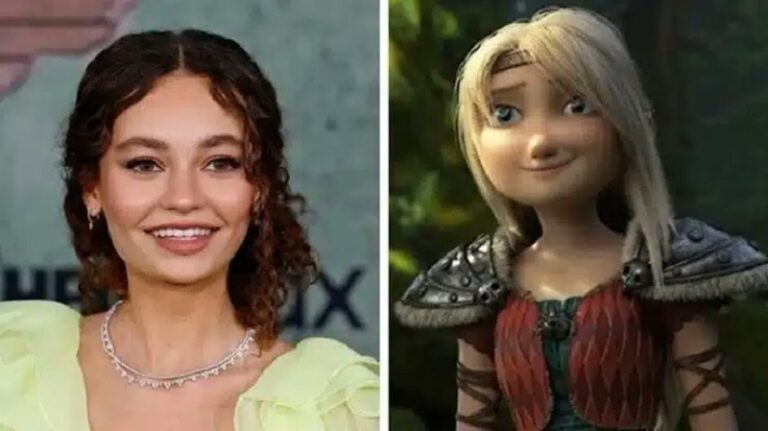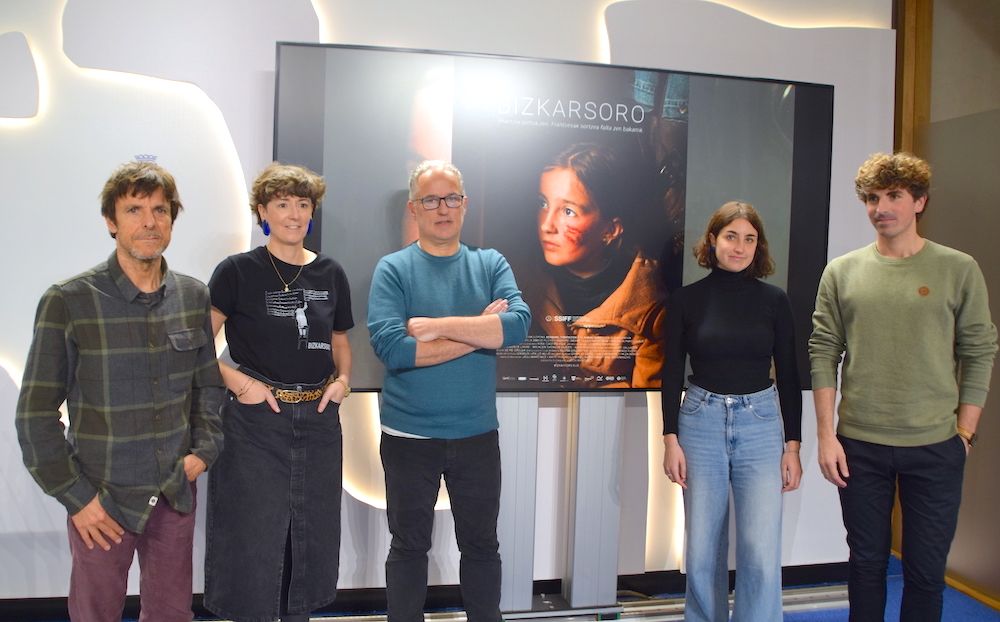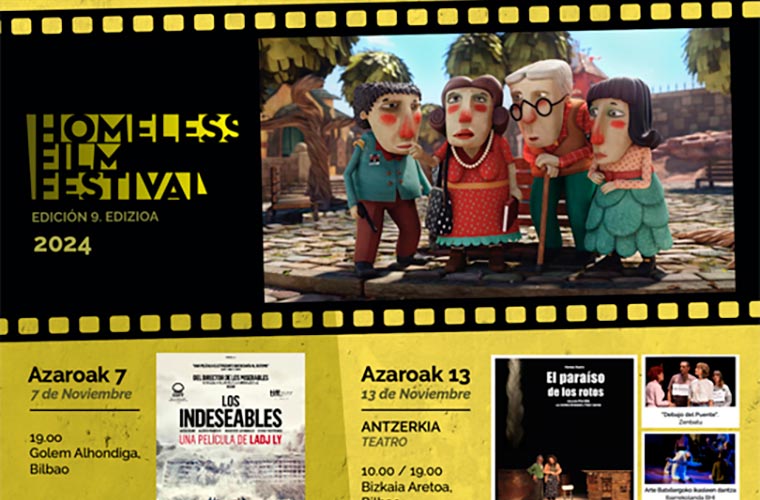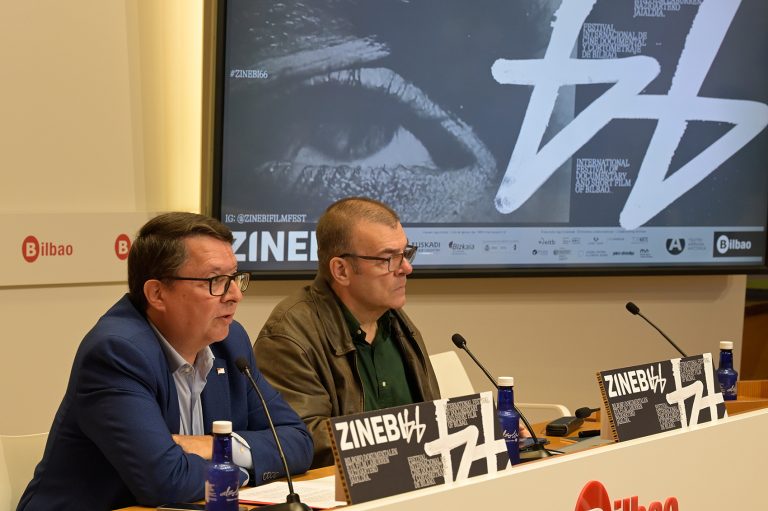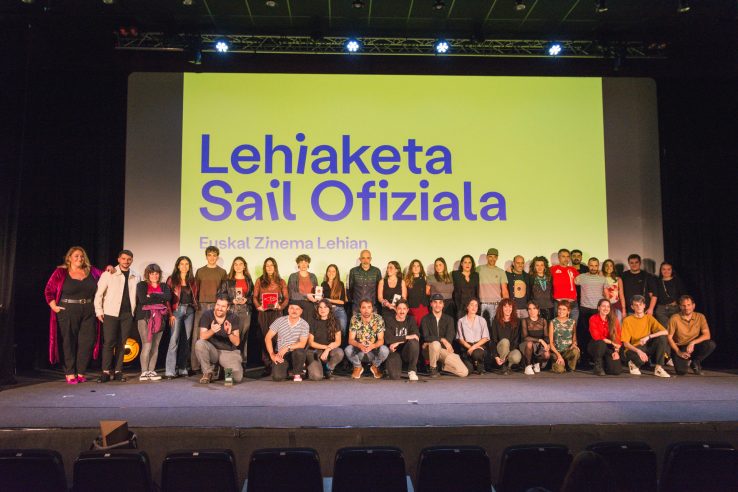"The cinema is made in the editing room"
- Deborah Stratman (Washington, USA) He stopped studying physics, thinking that at the end he would have to work for the military industry and at the Art School he met with film. The cinema had everything it liked: optics, relativity and mechanics, relationship with technology and the possibility of “carving time” described by Tarkovsky. On June 17, Deborah Stratman was in Tabakalera to present a session with the focus he dedicated to him. We're talking about film, about politics and how the world is invented through sound.
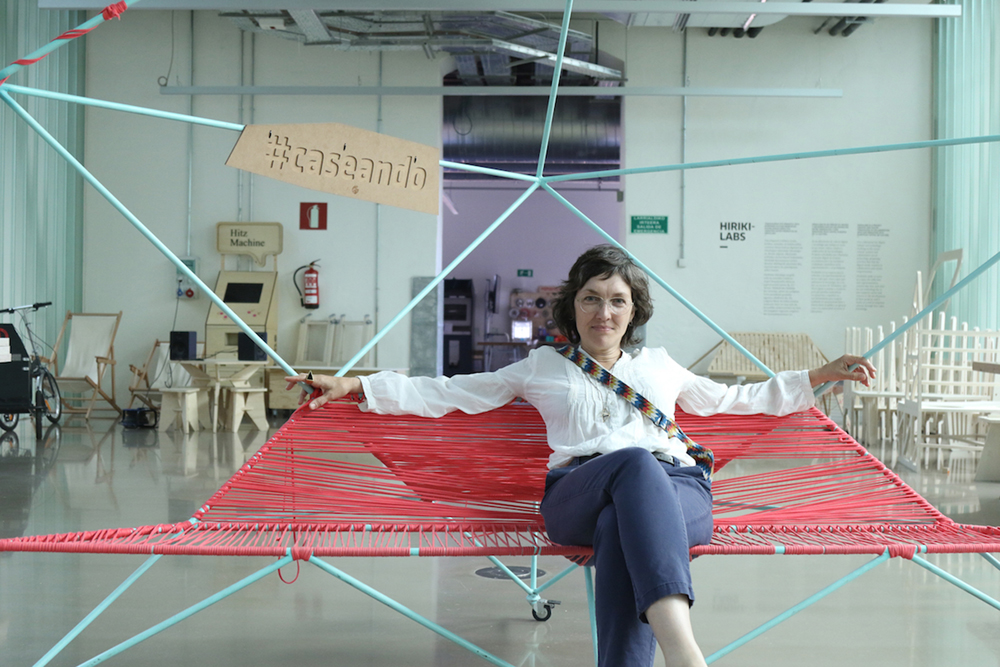
What was your idea of cinema when you went from science to cinema?
The first time I saw experimental movies, I was about 20 years old. At the time, I found a movie that really spoke to me. So I understood that there were other ways of using time. They don't have to be more radical, but there are ways that are far from literary. My films have also been like this from the very beginning. I remember one of the first ones I did: I rolled people as they cut their hair, and then I cut the film like I made a haircut -- (Laughter).
One of my first film teachers was Peter Kubelka and he certainly infected me. Through him, I had my first experience with time and sound. Through him came the idea of the court. We met every week in his nursery and he put us in Unsere Afrikaris. Every time we got together, we saw that movie. Nothing else. It was strange. I was deeply impressed.
“I would say that sound is the most subversive aspect of the movie, because we don’t think so much about sound. What you see will always be before you. What you hear is 360 degrees.”
His filmography shows the step he has taken from these first more formal works to more political works. How are you looking for the balance between form and content?
In my case, I think the form comes out of a concept and the opposition to an earlier form. For example, parable Illinois, at the end of the last movie I've made, didn't want to make another film totally historic and completely measured. I wanted to oppose that. I always like to work styles that I have used little or that are unusual.
But it's not an easy question, and at the same time, that's the fundamental question. In general, as a filmmaker, you want viewers to have a cinematic experience and feel like they're watching the movie, that that idea can't be expressed otherwise. For example, Otolith Group. I like them very much and I think they are very good, but sometimes when I look at their films, the ideas and the proposals I think are excellent, but I think they are going to lose the cinema. Maybe film isn't the best way to express those ideas. And that's the goal, isn't it? Through writing, an attempt at photography or a monologue, it would be impossible to do something visible through cinema.
Linked to the experience of the audience, their films support different levels of understanding. In Hacked Circuit, for example, we will see a foley studio and an artist foley playing music to a scene from The Conversation (Coppola, 1974). The character in the movie is looking for microphones that are hidden in his house. At the starting point of the film, there were cases of spying by Edward Snowden and the U.S. agency NSA, but unknowingly, the film works entirely. Do you consider the audience and the reception of the film when you are making a film?
“The purpose of the film is to make visible in writing, with photos or with a monologue what would not be possible”
The reception that a film will have in the future never conditions the way I do my work, but I am clear that it is very difficult, it is a challenge to make the film for everyone and, at the same time, to be radical and complex. In the case of Hacked Circuit, for example, we can say that the portrait is a movie, or maybe, if you've never seen a foley artist working, you can get to know foley art. You can connect to that level with the movie. Or maybe, with the rhythmic structure of choreography, being a loop, you create something like paranoia along the circuit and you can think of a control system, hidden control systems, etc. Each viewer can connect to a different level. You also learn as you're making movies and you're surprised by viewers. In the case of Illinois Parables, for example, I was very surprised at the reception he had. I think it's the most boring movie I've ever made, and it's been seen a lot more than other jobs. People seem to be interested in history. How not! And that people like to hear how history is told through stories. However, I do not have a specific answer.
(1).png)
We would like to ask about two concrete moments that the process of making a film has: on the one hand, the recording and the relationship you have with the camera; on the other hand, the relationship you have with the editing room. Many times your movies seem musical to us because of the symphonies you create in the editing room.
Most of the time I film my films myself, but I also like to work with other cameras. When I work with “Found Footage” is another thing, but if I ask someone to film me, I have to be clear that I fully trust and that communication is good. Working this way opens your eyes, because when you're rolling you become a little shortsighted. However, I think I have a very good relationship with my cameras. I'm not the camera that closes an eye as it rolls, I always have the two eyes wide open. I can watch my movie theater and my world at once. Surely many camerists will do so. It's very useful.
“I’m not the camera that closes an eye as it rolls, I have both eyes open to see both my film and my world.”
At first I became my camera, because I still didn't know what I wanted and I didn't want to explain to anyone what I was looking for. As I used the camera, I was looking for something, so how could someone find what they were looking for? Imagine a blind man and next to him, in his place and as if he were, a person who sees and feels the world. It doesn't make sense. I became my camera, because the camera was my sensory organ. And I really liked it. However, the truth is that I find it increasingly interesting to work with another person. I am interested in the translations, the gaps or the failure that may exist in the communication between the two. It could bring something that I had never imagined.
As for assembly, I'm a little dictator -- (Laughter). I will never leave it to anyone. I'm totally authoritarian. I myself and the editing room. Nothing else. I think that's where movies are made. I'm not a writer, with some exception, I never start by the script. The form emerges from the edition. For me, the pleasure of making movies is in the editing room. It's a joy to see that something tests and works unexpectedly. Most cuts and joints are extracted from the tests. These are opportunities that have not occurred to me before.
You've ever mentioned an interesting idea about sound: sound allows you to be in the middle. How do you work with sound and how do you relate it to image?
I think half of the movie is sound. Even if I decided to make a silent movie, the sound would be a big part of the movie. Maybe sound is the most subversive aspect of the movie, because we don't think so much about sound. Because we have our eyes on the front of our head, everything we see always has a unique direction. What you see will always be before you. What you hear is 360 degrees. I think the sound is much better than the image to create and to express itself. I think we don't realize how much sound creates space. The image can control where we look, but what really catches you is sound. The sound is more emphatic and really directs the gaze. So I like to manipulate sound: how we feel the time of reception, where we direct our gaze, how terribly we imagine the universe. The image can do this, but in exchange for a fortune. On the contrary, sound can make you feel a small room or an entire city and it's much cheaper. It's very effective to create the scale of the world through sound. For me, the key is sound. If sound wasn't tied to the idea of being a filmmaker, I think it wouldn't be a filmmaker.
Itoiz, udako sesioak filma estreinatu dute zinema aretoetan. Juan Carlos Perez taldekidearen hitz eta doinuak biltzen ditu Larraitz Zuazo, Zuri Goikoetxea eta Ainhoa Andrakaren filmak. Haiekin mintzatu gara Metropoli Foralean.









